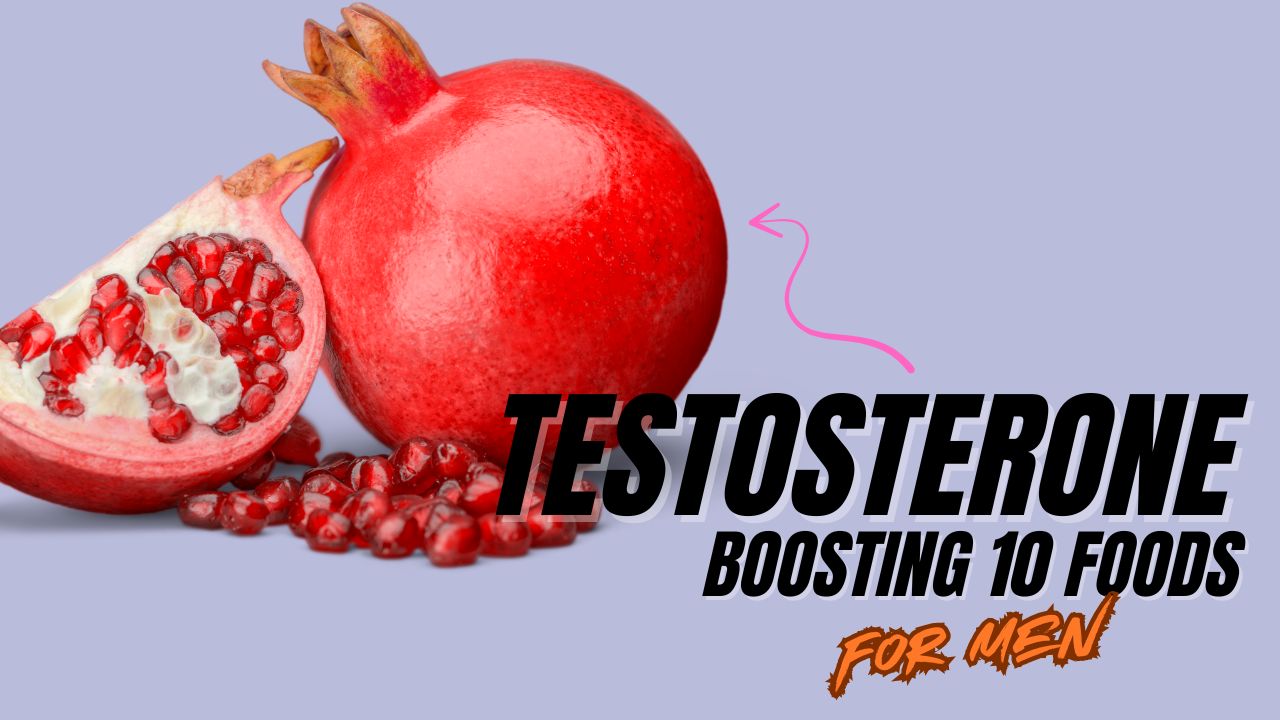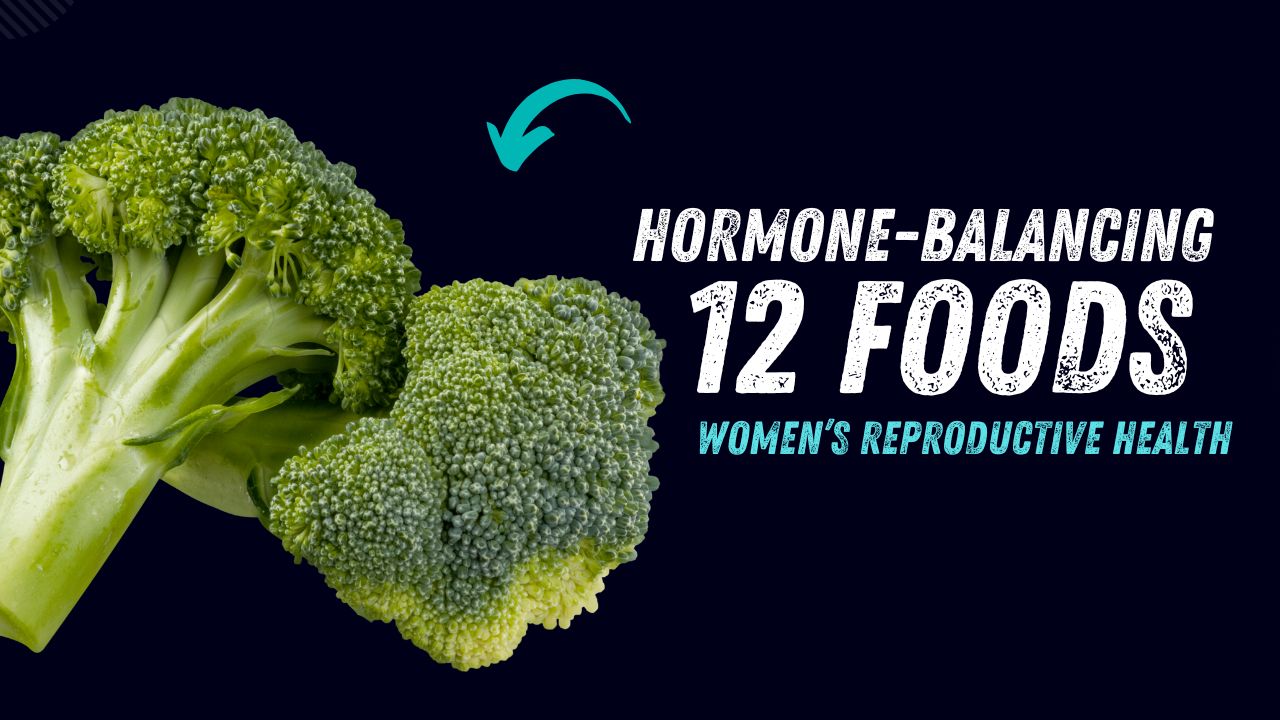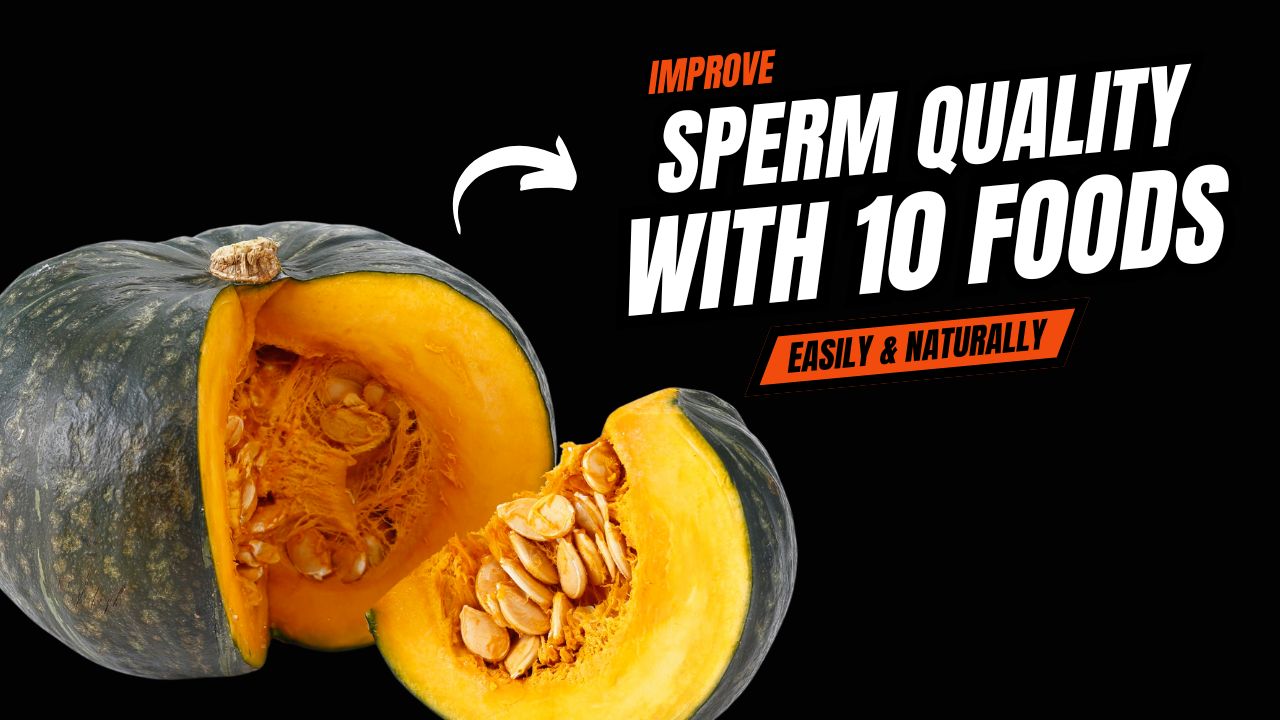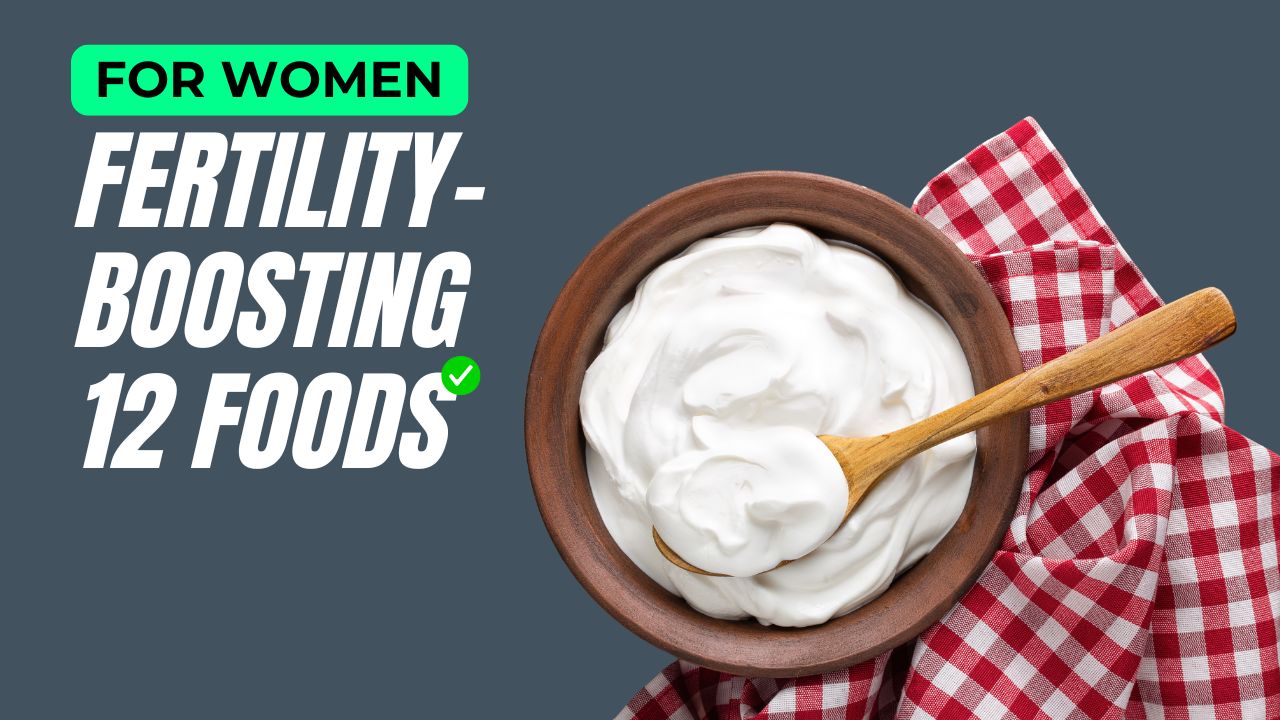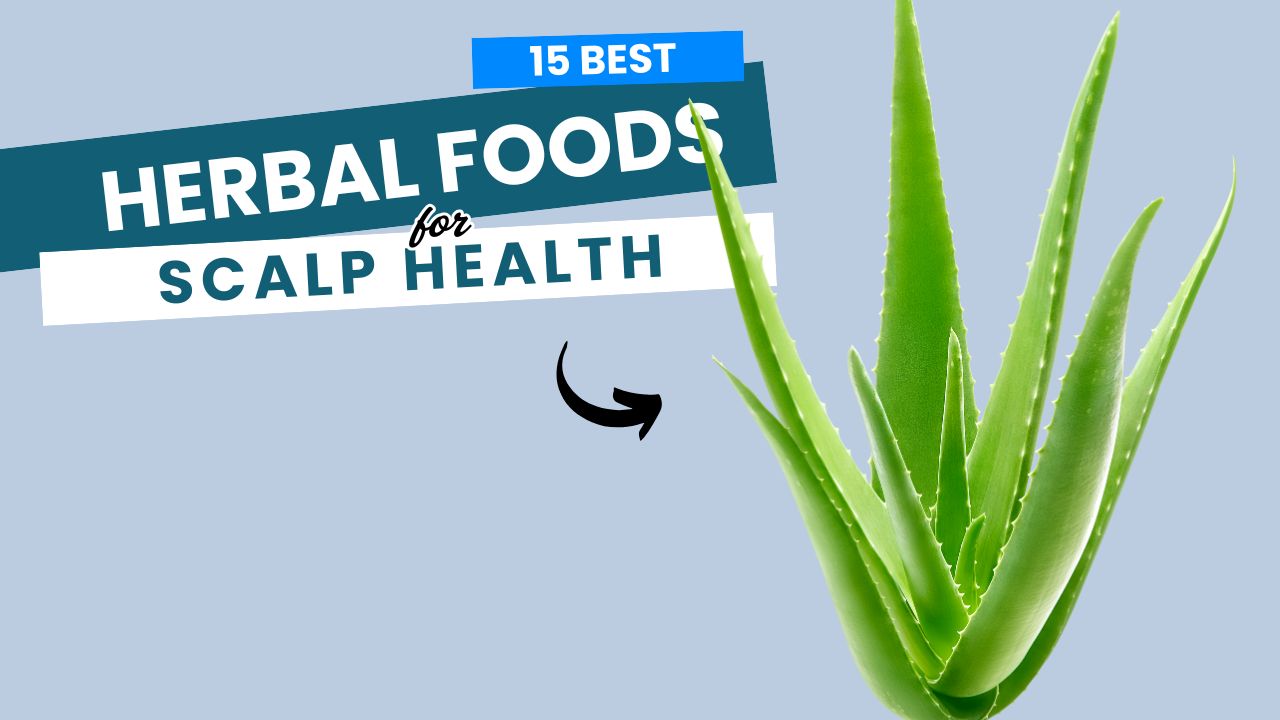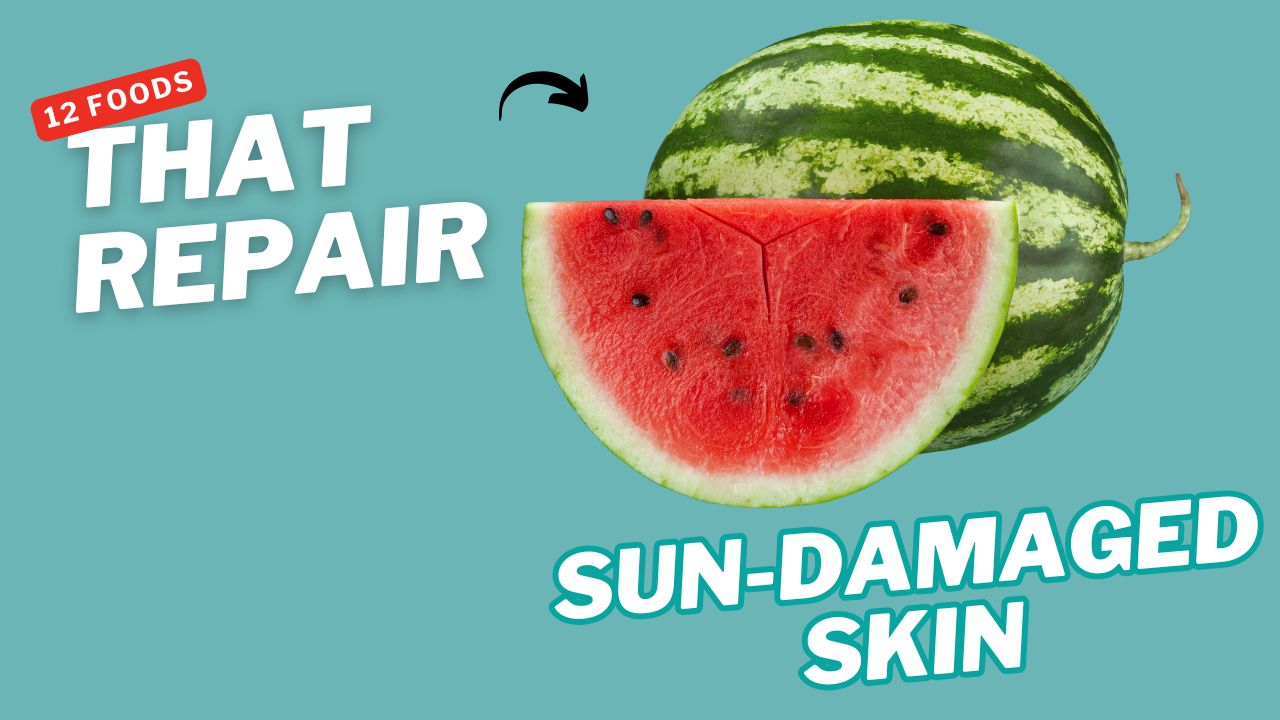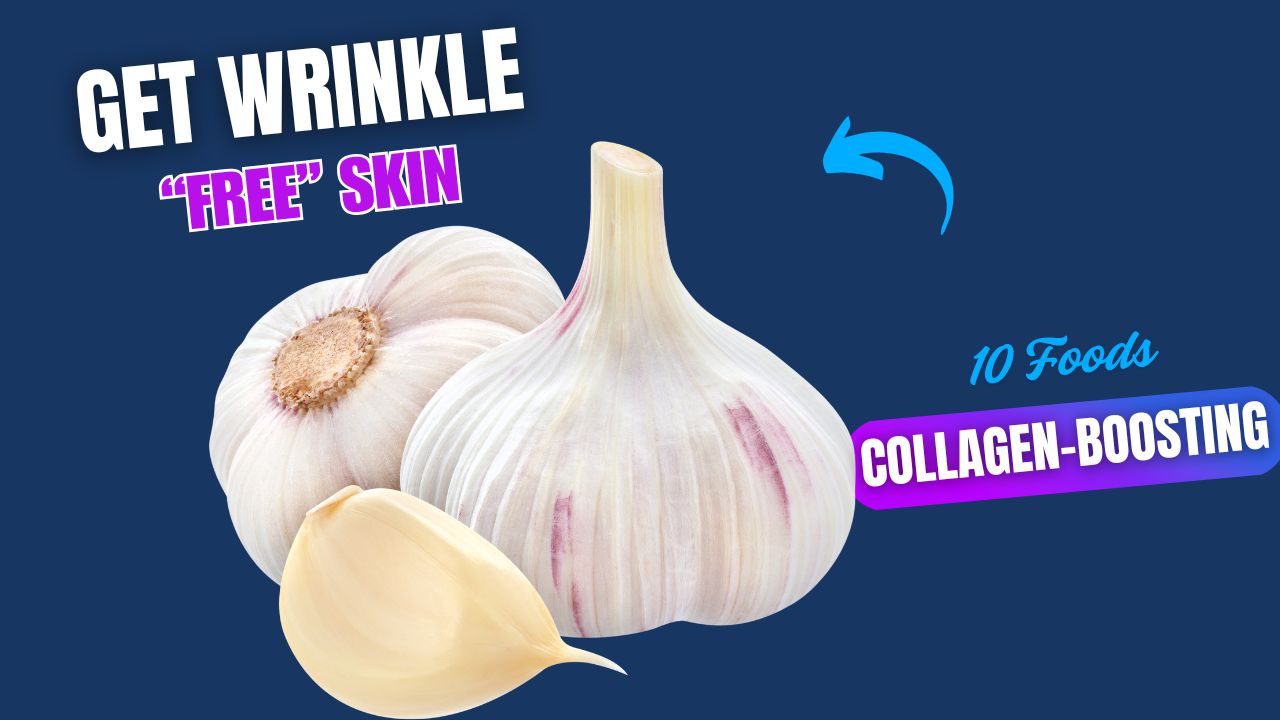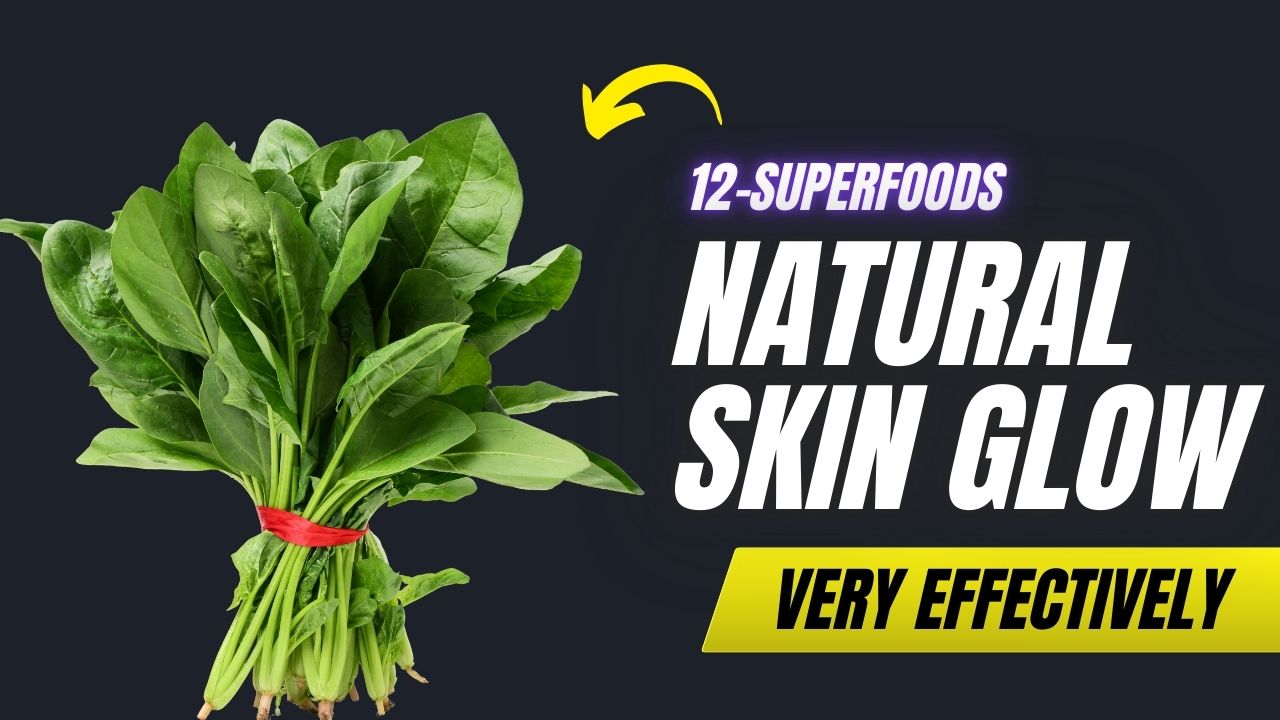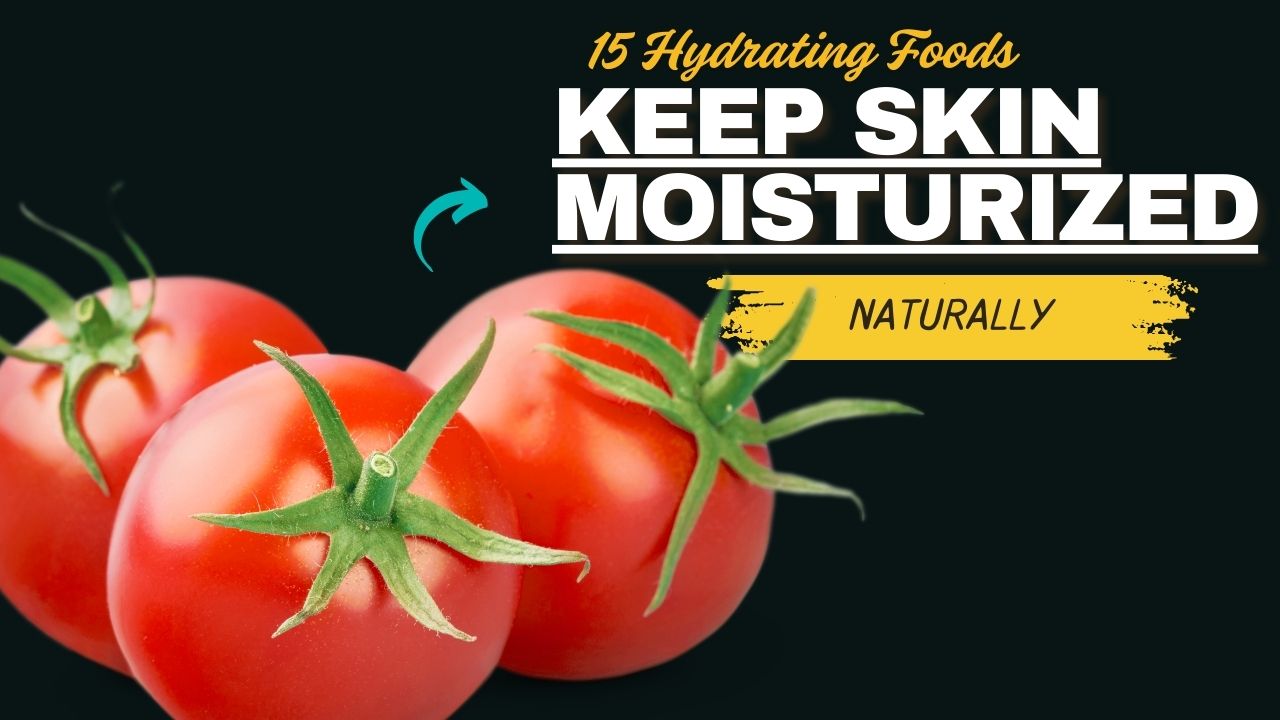Did you know that your blood platelets live for only 7–10 days before your body replaces them with new ones? These tiny, disc-shaped cells are the unsung heroes of your circulatory system.
They play a critical role in clotting, healing wounds, and preventing excessive bleeding. Without healthy platelet function, even a small cut could become a serious issue.
Struggling with low energy, frequent bruising, or prolonged bleeding? These might be subtle signs that your platelets aren’t functioning at their best. While medical treatment is crucial for severe platelet disorders, the good news is that your diet can naturally support platelet health.
In this post, we’ll uncover 12 powerful foods that promote healthy platelet function. You’ll learn how to include them in your meals, who should prioritize them, storage and buying tips, plus possible side effects to watch for.
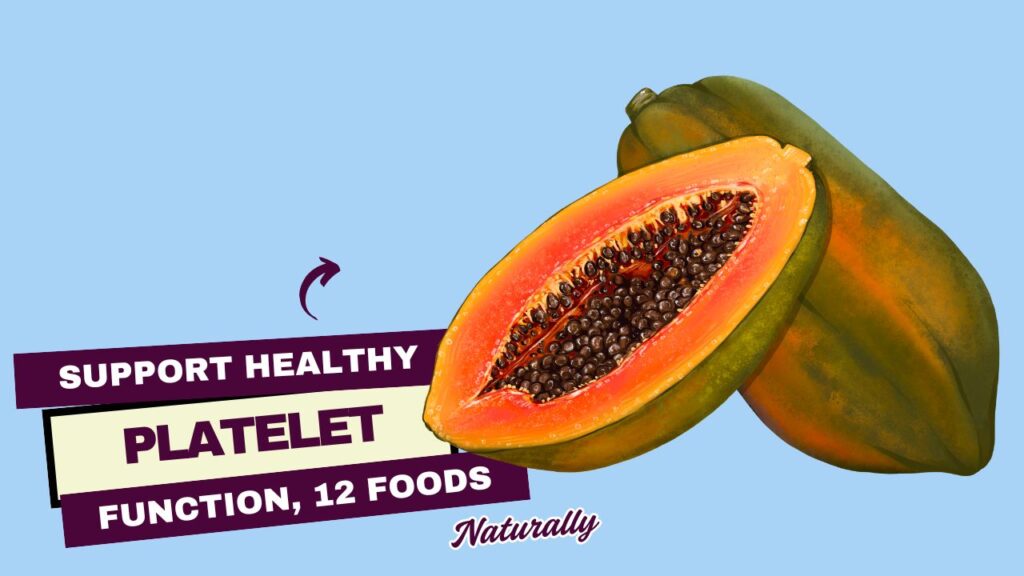
Table of Contents
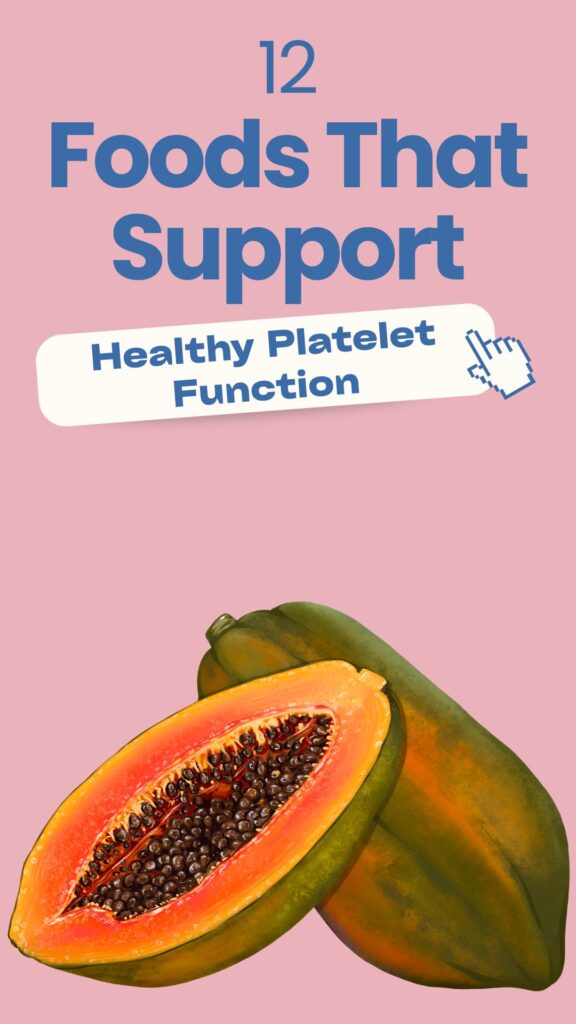
12 Best Foods For Healthy Platelet Function
1. Papaya
Papaya leaf extract has been studied for its potential to increase platelet count, especially during viral fevers like dengue. The fruit itself is loaded with vitamin C, folate, and antioxidants that strengthen the immune system and support healthy blood formation.
Best Ways to Eat or Use It
- Fresh slices as a mid-morning snack
- Blended into smoothies with citrus fruits
- Papaya leaf juice (traditional use in Asia for boosting platelets)
Who Should Eat / Avoid
- Good for: those recovering from infections, people with weak immunity
- Avoid if: you are pregnant (papaya latex can cause uterine contractions) or allergic to papain
Storage & Buying Tips
- Choose slightly soft papayas with orange skin
- Store unripe papayas at room temperature; refrigerate ripe ones for up to 5 days
Do’s & Don’ts
| ✅ Do | ❌ Don’t |
|---|---|
| Eat ripe papaya for better digestion | Consume unripe papaya during pregnancy |
| Try papaya leaf tea under supervision | Store cut papaya uncovered (oxidizes quickly) |
Possible Side Effects
Excessive papaya intake may cause digestive upset in some individuals due to its strong enzyme content.
2. Pomegranate
This ruby-red fruit is a platelet-protecting powerhouse. Rich in polyphenols, antioxidants, and vitamin C, pomegranate helps reduce oxidative stress, which otherwise damages platelets and hinders their activity.
Best Ways to Eat or Use It
- Fresh seeds in salads
- Pomegranate juice (fresh, not packaged with added sugar)
- Sprinkle seeds over yogurt bowls
Who Should Eat / Avoid
- Good for: heart patients, athletes, those with frequent infections
- Avoid if: you’re on blood-thinning medication (consult doctor)
Storage & Buying Tips
- Select heavy, firm fruits with a rich red color
- Store whole at room temperature for a week; refrigerate for longer shelf life
Do’s & Don’ts
| ✅ Do | ❌ Don’t |
|---|---|
| Drink fresh pomegranate juice | Add extra sugar to juice |
| Store seeds in airtight container | Leave seeds exposed (they dry quickly) |
Possible Side Effects
Overconsumption may interact with medications like warfarin due to its natural blood-thinning properties.
3. Spinach
Green leafy vegetables like spinach are rich in vitamin K, a nutrient essential for blood clotting and platelet aggregation.
Best Ways to Eat or Use It
- Lightly sautéed with garlic
- Blended into green smoothies
- Added raw to salads with citrus dressing
Who Should Eat / Avoid
- Good for: people with low iron, vegetarians
- Avoid/Limit if: you have kidney stones (oxalates may worsen condition)
Storage & Buying Tips
- Choose fresh, crisp leaves with no yellowing
- Refrigerate in breathable bags; wash only before use
Do’s & Don’ts
| ✅ Do | ❌ Don’t |
|---|---|
| Pair spinach with lemon juice for better iron absorption | Overcook (destroys vitamin C and folate) |
| Use fresh in salads | Store wet leaves (leads to spoilage) |
Possible Side Effects
In rare cases, excessive spinach consumption can cause kidney stone formation due to high oxalate content.
4. Beetroot
Beetroot is rich in natural nitrates and iron, which enhance blood flow and support red blood cell production—both of which indirectly benefit platelet function.
Best Ways to Eat or Use It
- Fresh beetroot juice with carrot
- Roasted beetroot in salads
- Beetroot hummus as a dip
Who Should Eat / Avoid
- Good for: athletes, people with low stamina
- Avoid if: you have kidney issues or low blood pressure (it can reduce BP further)
Storage & Buying Tips
- Choose firm, deep-colored beets
- Store in refrigerator wrapped in paper towel for up to 2 weeks
Do’s & Don’ts
| ✅ Do | ❌ Don’t |
|---|---|
| Combine beetroot with carrots | Consume too much if you have kidney problems |
| Use in salads, juices | Store without trimming leaves (leaves drain nutrients) |
Possible Side Effects
May cause “beeturia” (red-colored urine) which is harmless but alarming to some.
5. Pumpkin Seeds
Pumpkin seeds are packed with zinc, iron, and magnesium, all vital for platelet production and function.
Best Ways to Eat or Use It
- Roasted as a crunchy snack
- Sprinkled over oatmeal or salads
- Added into energy bars
Who Should Eat / Avoid
- Good for: athletes, vegetarians, people with anemia
- Avoid if: you have nut/seed allergies
Storage & Buying Tips
- Buy unsalted, raw seeds for maximum nutrients
- Store in airtight jars away from sunlight
Do’s & Don’ts
| ✅ Do | ❌ Don’t |
|---|---|
| Roast lightly for flavor | Over-salt (increases sodium load) |
| Mix into smoothies | Store in humid places (causes rancidity) |
Possible Side Effects
Overeating may cause digestive upset due to high fiber.
6. Citrus Fruits (Oranges, Lemons, Grapefruit)
Citrus fruits are rich in vitamin C, which strengthens immunity and helps platelets function effectively by preventing oxidative stress.
Best Ways to Eat or Use It
- Fresh juice in the morning
- Lemon water for hydration
- Orange slices as snacks
Who Should Eat / Avoid
- Good for: anyone with low immunity, athletes
- Avoid if: you have acid reflux or citrus allergy
Storage & Buying Tips
- Select heavy fruits with firm skin
- Store in refrigerator crisper drawer
Do’s & Don’ts
| ✅ Do | ❌ Don’t |
|---|---|
| Drink fresh citrus juice | Store peeled fruits outside fridge |
| Add lemon to spinach for better iron absorption | Overconsume if prone to acidity |
Possible Side Effects
Too much citrus may erode tooth enamel or worsen acidity.
7. Fish (Salmon, Mackerel, Sardines)
Rich in omega-3 fatty acids, fish reduces inflammation and supports healthy platelet membranes.
Best Ways to Eat or Use It
- Grilled or baked fillets
- Added to salads or wraps
- Lightly pan-seared with olive oil
Who Should Eat / Avoid
- Good for: athletes, people with heart disease
- Avoid if: allergic to seafood or on strong blood thinners
Storage & Buying Tips
- Choose fresh, firm, non-fishy smelling fish
- Store on ice or in refrigerator; consume within 2 days
Do’s & Don’ts
| ✅ Do | ❌ Don’t |
|---|---|
| Opt for wild-caught fish | Fry in deep oil (destroys benefits) |
| Store in airtight packs | Refreeze thawed fish |
Possible Side Effects
Excessive fish consumption may lead to mercury exposure in certain varieties.
8. Kiwi
Kiwi is high in vitamin C and antioxidants that prevent platelet clumping, reducing the risk of abnormal clot formation.
Best Ways to Eat or Use It
- Freshly sliced
- Kiwi smoothies with banana
- Added to fruit salads
Who Should Eat / Avoid
- Good for: people prone to clotting, those seeking immunity boost
- Avoid if: allergic to kiwi (causes itching or swelling)
Storage & Buying Tips
- Select slightly firm but not hard kiwis
- Store at room temperature until ripe; refrigerate afterward
Do’s & Don’ts
| ✅ Do | ❌ Don’t |
|---|---|
| Eat with skin for more fiber | Store in plastic bags (leads to faster spoilage) |
| Combine with citrus for vitamin boost | Overconsume (can irritate mouth) |
Possible Side Effects
Too much kiwi may cause oral irritation due to its enzyme actinidin.
9. Garlic
Garlic helps in maintaining optimal platelet activity by preventing excessive clumping while still supporting healthy clotting balance.
Best Ways to Eat or Use It
- Raw crushed garlic with honey
- Roasted in dishes
- Garlic-infused olive oil
Who Should Eat / Avoid
- Good for: people with high blood pressure or cholesterol
- Avoid if: you’re on anticoagulants or before surgery
Storage & Buying Tips
- Choose firm bulbs with dry outer skin
- Store in cool, dry place away from sunlight
Do’s & Don’ts
| ✅ Do | ❌ Don’t |
|---|---|
| Use raw for maximum benefits | Overcook (loses active compounds) |
| Store in mesh bag | Refrigerate peeled cloves (leads to sprouting) |
Possible Side Effects
Excessive intake may cause stomach upset or bad breath.
10. Nuts (Almonds, Walnuts)
Nuts are rich in healthy fats, vitamin E, and protein, which keep blood vessels and platelets functioning well.
Best Ways to Eat or Use It
- Handful as snacks
- Blended into nut butters
- Sprinkled over oatmeal
Who Should Eat / Avoid
- Good for: vegetarians, athletes, those on heart-healthy diets
- Avoid if: nut allergies present
Storage & Buying Tips
- Store in airtight jars in cool places
- Refrigerate in humid climates
Do’s & Don’ts
| ✅ Do | ❌ Don’t |
|---|---|
| Eat a handful daily | Overconsume (high calorie load) |
| Choose raw or lightly roasted | Buy salted or sugary versions |
Possible Side Effects
High intake may contribute to weight gain due to calorie density.
11. Broccoli
A cruciferous vegetable loaded with vitamin K, vitamin C, and antioxidants, broccoli is excellent for platelet health.
Best Ways to Eat or Use It
- Steamed lightly
- Roasted with olive oil
- Added to stir-fries
Who Should Eat / Avoid
- Good for: vegetarians, weight-loss seekers
- Avoid if: you have thyroid issues (consume in moderation)
Storage & Buying Tips
- Select firm, green florets
- Refrigerate in open plastic bag; use within 3–5 days
Do’s & Don’ts
| ✅ Do | ❌ Don’t |
|---|---|
| Steam lightly for nutrient retention | Overcook (destroys nutrients) |
| Combine with garlic and lemon | Store washed (leads to spoilage) |
Possible Side Effects
May cause gas or bloating due to fiber content.
12. Watermelon
Watermelon is hydrating and rich in antioxidants like lycopene, which protect platelets from oxidative stress.
Best Ways to Eat or Use It
- Fresh slices in summer
- Watermelon juice
- Mixed fruit salad
Who Should Eat / Avoid
- Good for: athletes, children, those in hot climates
- Avoid if: diabetic (limit portions due to sugar content)
Storage & Buying Tips
- Choose heavy melons with a hollow sound
- Refrigerate cut pieces in airtight containers
Do’s & Don’ts
| ✅ Do | ❌ Don’t |
|---|---|
| Eat chilled in hot weather | Store cut watermelon uncovered |
| Use in juices without added sugar | Consume too much (may spike blood sugar) |
Possible Side Effects
Excessive consumption may cause digestive upset or high sugar intake.
Conclusion
Your platelet health is influenced not just by genetics or medical conditions, but also by what you put on your plate every day.
From papaya and pomegranate to spinach and watermelon, these 12 nutrient-rich foods can help maintain strong, functional platelets and support overall blood health.
The best part? Most of these foods are easily available and can be added to your daily diet in simple, delicious ways.
Start by trying one or two of these foods in your next meal. You might be surprised at how small changes in your diet can make a big difference in your energy, healing, and resilience.
Which of these platelet-boosting foods will you add to your diet first? Share your favorite recipe or meal idea in the comments below!
Frequently Asked Questions (FAQs)
Which foods are best for increasing platelet count naturally?
Foods like papaya, pomegranate, spinach, kiwi, and pumpkin seeds are known to support healthy platelet function and may help improve platelet count naturally.
Can diet alone cure low platelet disorders?
No. While diet can support platelet health, medical treatment is essential for conditions like dengue, immune thrombocytopenia (ITP), or bone marrow disorders. Food should be used as complementary support.
How long does it take for foods to improve platelet health?
It varies by individual. In general, consistently eating nutrient-rich foods for a few weeks may support better platelet function, but results depend on overall health and medical conditions.
Are there any foods that should be avoided if you have low platelets?
Yes. Highly processed foods, excessive alcohol, and very oily or sugary foods may stress the liver and immune system, negatively affecting platelet health.
Can citrus fruits really improve platelet function?
Yes. Citrus fruits are rich in vitamin C, which helps strengthen immunity, protects platelets from damage, and supports overall blood clotting.
Do platelet-boosting foods help during dengue fever?
Some studies suggest that papaya leaf extract and pomegranate may help improve platelet counts during dengue fever, but they should only be used under medical supervision.
Is it safe to eat fish and nuts if I have low platelets?
Yes, in moderation. Fish and nuts provide healthy fats and protein that support blood health. However, people on blood thinners should consult a doctor first.
Can children eat these platelet-supporting foods?
Yes, most of these foods are safe and beneficial for children. However, avoid potential choking hazards (like whole nuts) and check for allergies.
Does cooking destroy nutrients that support platelet health?
Overcooking can reduce certain vitamins like vitamin C and folate. Light steaming, roasting, or consuming foods raw (when safe) preserves most nutrients.
When should I see a doctor instead of relying on foods for platelets?
If you experience frequent bruising, nosebleeds, excessive bleeding, or have a platelet count consistently below normal, seek immediate medical care.
